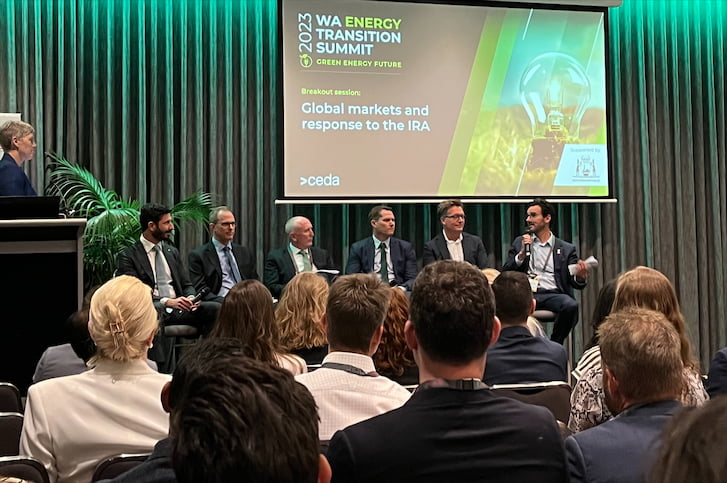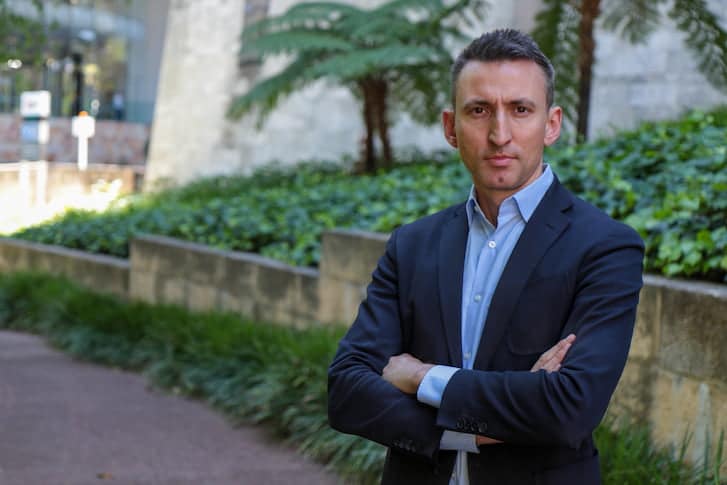
CCIWA CEO Chris Rodwell (far right) speaks at the Energy Transition Summit
WA’s fight for global investment in critical minerals and clean technologies was in the spotlight at the Energy Transition Summit at the Perth Convention and Exhibition Centre.
CCIWA CEO Chris Rodwell joined a panel at the Committee for Economic Development of Australia (CEDA)-co-hosted event with WA Minister for Science and Innovation, Stephen Dawson, energy sector business leaders and key stakeholders to discuss how WA can become a key global player in renewable energy, attract investment and unlock opportunities in clean energy industries.
Key issues included the impact of the Inflation Reduction Act (IRA) in the US as well transition challenges such as energy infrastructure, jobs, social license, regulation, finance, and the important role of gas.
The IRA is offering generous subsidies to companies that establish energy projects in the US, including new mines to secure supply of critical minerals and rare earths for battery production. Similar schemes exist in Canada, the EU and Japan.
Rodwell says aside from the IRA, Australia already faces several challenges in attracting investment from overseas, including a complex and sluggish environmental approvals regime.
“Our report, The Green Web: how environmental approvals could trap Australian investment, lays bare that hundreds of billions of dollars in investment are at risk in WA from delays in environmental approvals,” he says.
“We need to preserve our reputation as a good place to invest in and do business to attract the money needed to develop projects in our State, because there are plenty of other places that are competing with us for global capital.
“If we can improve in that regulatory space, we have a great opportunity to play a bigger role in the energy transition.”
Rodwell says the WA Government is working hard to create new markets for the State’s industries, including through several trade missions to the US and Asia.
“Western Australian governments have traditionally been very good at thinking about our place in the world and certainly the current Government is doing its best to reach out to those key markets,” he says.
Rodwell says while it is hard to compete with the significant subsidies on offer overseas, there are some simple things Australia can do to secure clean energy investment in the future.
“It’s not just about putting money on the table to incentivise investment but everything else that goes with it,” he says.
“Investment in skills, training and regulatory reform are a huge piece of the puzzle.
“It’s so important that school kids are engaged to develop the types of skills that will be needed to support WA’s energy transition – not only the traditional trades we need for mining and construction but also advanced engineering, software development, artificial intelligence and automation.
“If we can get those basics right, we can create the right kind of conditions to invest, which will deliver more jobs and prosperity for WA.”
The summit featured keynote addresses from WA Premier Roger Cook, Federal Resources Minister Madeleine King, Federal Climate Change Minister Chris Bowen and WA Treasurer Rita Saffioti.
Find out what we stand for to make WA the best place to live and do business.






